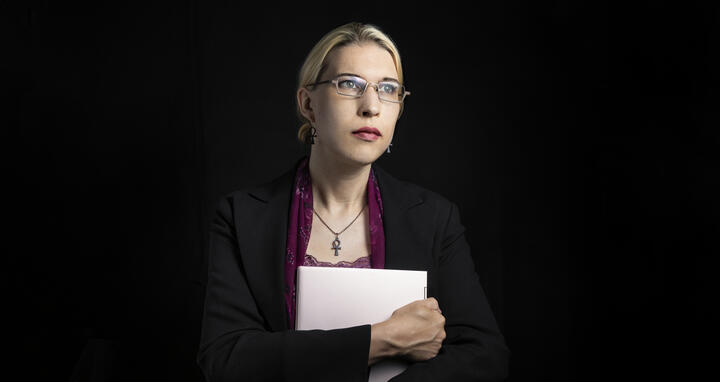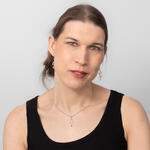Sofia Forslund awarded W3 professorship
The organism and the microbiome always develop together toward health or disease. In her Host-Microbiome Factors in Cardiovascular Disease Lab at the Experimental and Clinical Research Center (ECRC), a joint institution of the Max Delbrück Center and Charité – Universitätsmedizin Berlin, Dr. Sofia Forslund investigates how the diverse array of bacteria in the gut affect our health and vice versa. Forslund previously held a junior professorship at the ECRC. She will take up a W3 professorship at Charité on August 1, where she will have teaching duties in addition to her research activities.
The biochemist and bioinformatician is using high-throughput methods to analyze the individual gut microbiomes of thousands of healthy people, as well as those of people with cardiovascular diseases. The microbiome is the unique mix of bacteria and other microbes inside the intestines. She wants to more accurately characterize the mutual interaction between humans and the microbiome and explore its role in both health and disease. “With this knowledge, we hope to contribute to the development of personalized therapies,” says Forslund.
In an especially surprising finding in 2022, Forslund discovered that drugs affect cardiovascular health via the gut microbiome. It has long been clear that antibiotics not only kill disease-causing organisms, but also destroy beneficial gut bacteria. Forslund’s research has, however, demonstrated that this can lead to cardiometabolic disease and negatively impact disease progression, while also impairing effective treatment. Her work has also shown that other drugs – like beta blockers and diuretics administered together – can positively affect the gut microbiome. In this case, the number of protective gut microbes increases, producing anti-inflammatory effects in the body.
I’m proud to have been appointed to this important academic position as a trans person.
Forslund was among the world’s most highly cited researchers in 2022 and has thus exerted a profound influence in her field. She also wants to leave her mark beyond the realm of science: “I’m proud to have been appointed to this important academic position as a trans person,” she says. “I don’t know how many others have achieved this in Germany – I personally don’t know of anyone else who has.” Forslund wants to use her professorship to advocate not only for more visibility for those whose backgrounds don’t fit the traditional mold – but also for more tolerance and diversity in society.
Text: Stefanie Reinberger






